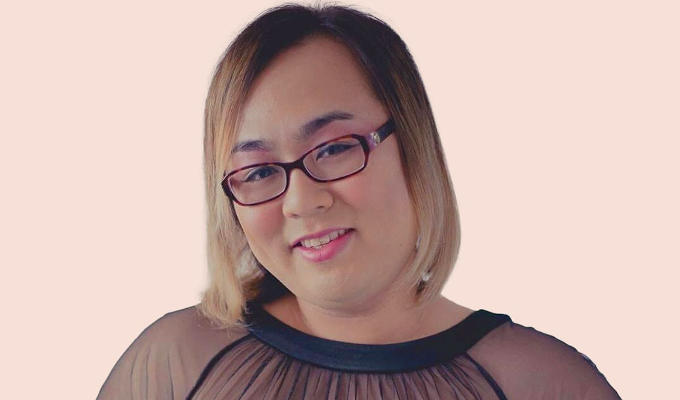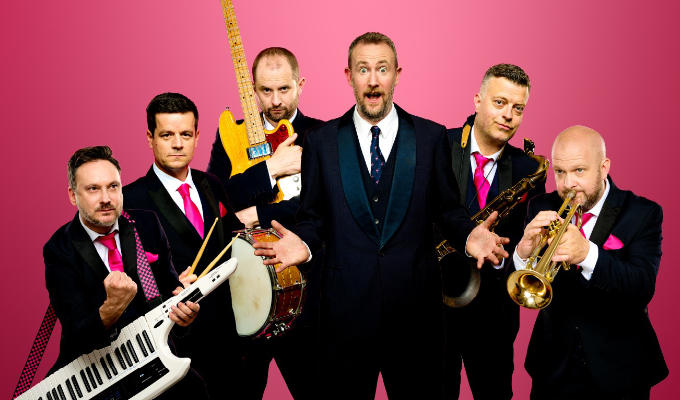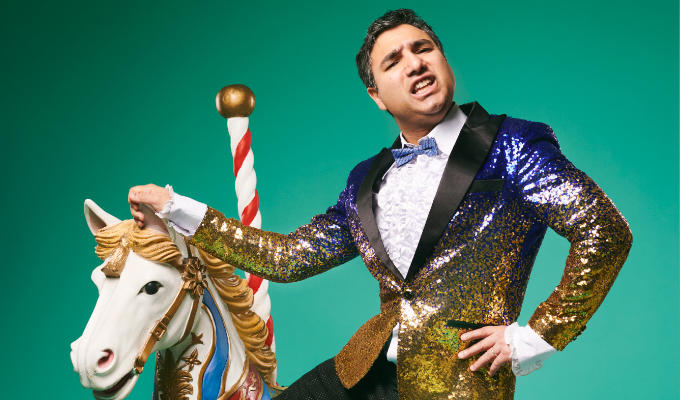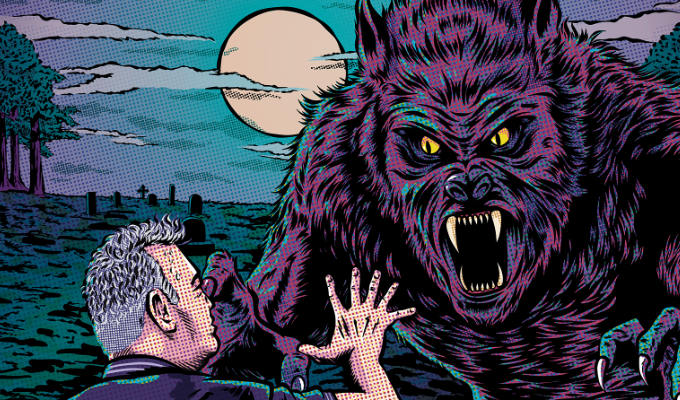
Podcasts are bad for stand-up
Especially those fronted by 'free speech’ comedians complaining about ‘cancel culture’, says Robin Tran
As much as I used to love podcasts, I think the over-saturation of comedian’s podcasts in the past few years has been bad for stand-up comedy as an artform. I’m not talking about all, or even most comedians, merely a group of some of the top names who are mostly famous from their podcasts rather than their actual stand-up.
Technology has got to a point where anybody can easily broadcast their thoughts and put them on the internet. In fact, during the height of the pandemic, Amazon actually sold out of podcast equipment. Those were the two things that ran out during Covid: podcast equipment and toilet paper.
Now, these comedian podcasters can do what they’d always dreamed of, which is get paid simply for having thoughts, talking, and existing. They can get together with other comedian podcasters where they just talk to each other extemporaneously so the listeners at home can feel like they’re part of their friend group.
And I’m convinced that some of these comedians are more interested in glamorising the lifestyle of a comedian rather than actually being a comedian. They can hype each other up, exaggerating each other’s importances, and talk about stand-up comedy being the purest and only true form of expression, and through repetition over the course of hundreds of hours of podcasting, it seeps into the consciousness of their fans, and eventually seeps into the culture.
When stand-up comedy is presented as this sacred profession, one that is beyond reproach or criticism, then comedians become untouchable. How many times have we heard that comedians are ‘modern-day philosophers’ and the last bastions of free speech? And when comedians can present themselves in this light, then their fans are along for the ride and get swept up in the hype without even having to hear a single joke from them.
And after years of comedians going unchecked and uncriticised, they have free rein to sell ads. It becomes the norm for much of a comedian’s podcast to be ads, something that used to be unheard of when podcasts first came into popularity more than a decade ago. The appeal was that you had access free, unfiltered thoughts, but now you have to sit through more commercials than you would during network television.
I know the phrase ‘back in my day’ is not a commonly used phrase by Asian trans women, but back in my day, if a comedian ‘sold out’, it would be seen as a shameful thing, and they would at least be criticised for it.
It’s not that comedians should never sell out, but it used to be frowned upon for somebody to be money-hungry than caring about artistic integrity.
I miss this.
Now, it’s the complete opposite. Due to the monumental influx of comedian podcasts, it’s no longer a shameful thing to sell out. And not only that, it’s now ENCOURAGED to sell out. It’s encouraged to make as much money as you possibly can. And if you even dare criticise this greedy nature that a lot of comedians have been developing, you’ll be slated for being weak and naive just because you aren’t joining in on this money-making scheme where the actual stand-up becomes secondary.
I’m not trying to be a martyr or suggest that making money is a bad thing. I love making money as a way of making ends meet. I’m talking about the attitude around money and how being greedy is now seen as a noble trait. We’ve got to a place now where if you don’t monetise every single waking moment of your life, then you’ll be seen as a sucker who doesn’t know how the game works.
The issue with money being your main focal point is that you’ll start self-censoring because you’re so afraid of losing that money that you hold back your jokes, thoughts, and opinions.
There’s a group of ‘free speech’ comedians who are constantly complaining about ‘cancel culture’ and how they can’t say what’s on their mind, but what they’re really talking about is their own personal fear about losing the money they’ve made.
Their fears have nothing to do with free speech. What happens is, they’ll think of a joke inside of their own heads, think about posting it or saying it onstage, envisioning audiences being upset and everything being taken away from them, and then getting upset about the fears that they’ve imagined.
And while they’re self-censoring, they claim ‘you can’t say anything nowadays’ and fool people into thinking they’ve told an offensive joke when all they’ve done is complain on their podcasts that they can’t say their thoughts (which they allude to, but never actually say). And this is another money-making scheme. If they can make their audiences feel that free speech is taken away from them and the comedian they’re listening to is the only person who is fighting for that speech, their audience will give them money to keep fighting the good fight.
It’s no different from getting an email from a politician asking you to donate $5 to their campaign because they’re the only ones who can fight against fascism.
The problem with the industry is that this attitude has been rewarded. Comedians will be offered comedy specials on the strength of the size of their podcast audiences without any regard over whether or not they deserve a special through the strength of their on-stage material, because the on=stage material is beside the point. It’s all about selling yourself as a product.
And even their own fans have started to slowly figure this out. There’ve been several podcasters’ comedy specials where their fans will say: ‘His stand-up isn’t very funny, but I love his podcast and it was great to see him live!’
And if this trend continues, comedy specials cease to become special, because nobody has anything to say and everything to sell.
• Robin Tran is heading to the Edinburgh Fringe for the first time with her stand-up show Don’t Look At Me at Assembly George Square at 6.25pm. She does not have a podcast.
Published: 4 Jul 2023






